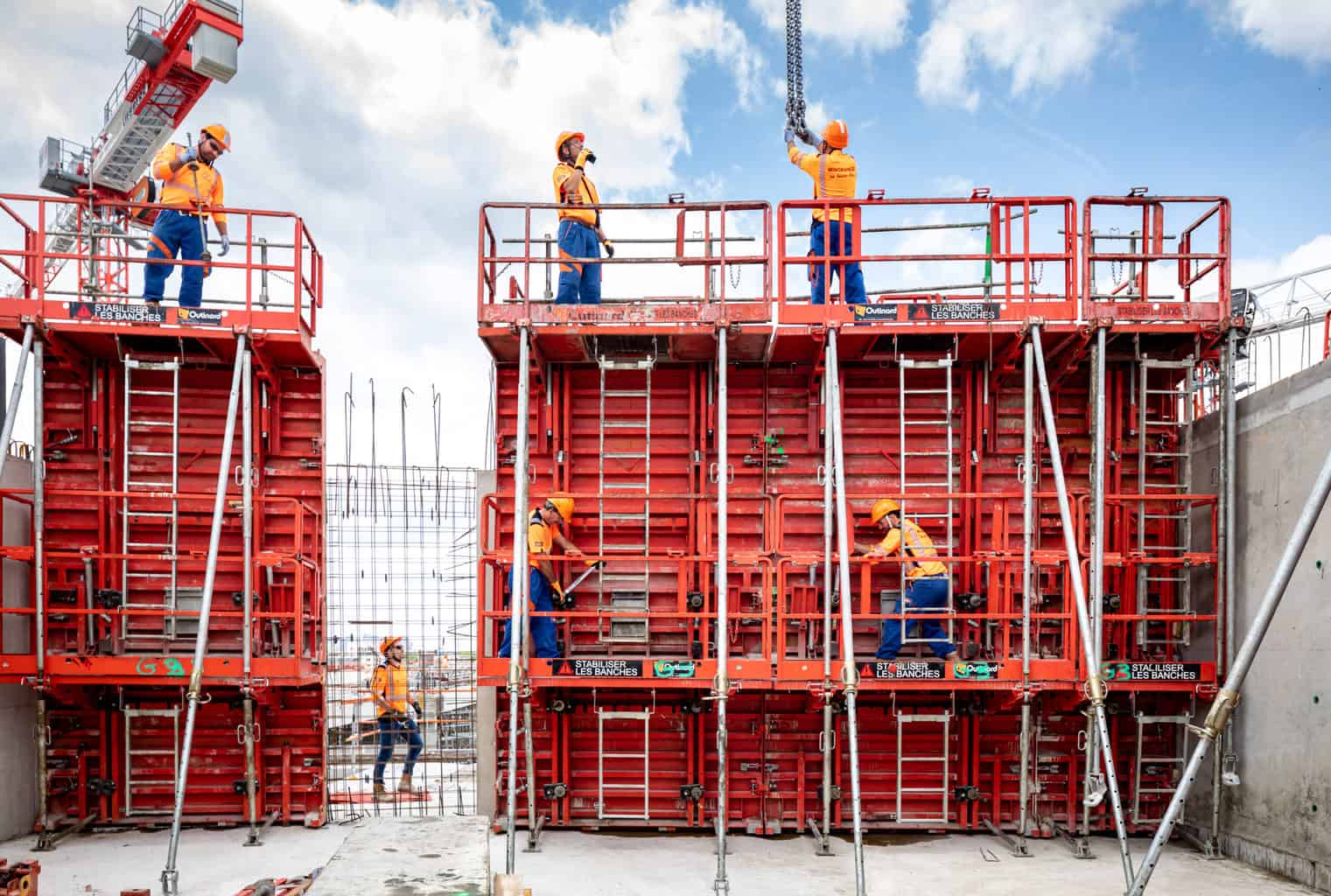
3 questions à Soufiane EL MOUSSAOUI, doctorant au sein de la Chaire Construction 4.0
3 minutes of reading
. .

Logistics in construction has implications for the cost of a project, the time taken, its quality and its environmental impact. Soufiane El Moussaoui, doctoral student at Chaire Construction 4.0, is examining this topic in her thesis, which is aimed at improving how logistics is managed.
How is your thesis at Bouygues Construction going?
I am working within the Bouygues Bâtiment France Europe team of the Smart Fabrik project, with Fanny Brunet, in Julien Fléchard’s team. SmartFabrik is Bouygues Bâtiment France Europe’s initiative to industrialise its construction projects. Industrialisation covers all the methods and production processes that make it possible to be more efficient when carrying out projects, and the SmartFabrik project is aimed at optimising cost, quality and time factors. SmartFabrik is also targeting other significant knock-on effects in terms of safety, ergonomics, saving resources and waste reduction. See also: https://www.bouygues-batiment-ile-de-france.com/actualites/parole-dexpert-3-questions-un-expert-en-industrialisation (in French)What impact does logistics have on a project and its stakeholders?
Several factors depend on good logistics in a project: worker safety, the money and time needed for the project, and, finally, its environmental impact. Mastering logistics means mastering these important considerations. The purpose of my thesis, entitled Contribution to the industrialisation of construction: study on the implementation of logistics centres in housing projects, is to develop a pertinent logistics initiative to reduce the related risks (delivery delays, damaged materials, etc.), and to introduce practical tools to support this initiative. Why? So that all of a project’s stakeholders can benefit from optimised logistics. From the workers on a site, for whom material handling will be less frequent and carried out in more ergonomic conditions to enable them to spend more time on phases that create value such as installation, to the client, who will have their project comply with their deadlines and quality requirements and their relationships with neighbours improved thanks to reduced noise pollution. For local authorities, reducing the environmental impact is a necessity, as is reducing the disruption caused by traffic around the site. The supervisory team, for their part, will be able to protect the schedule while at the same time having more flexibility. As part of the SmartFabrik project, we are looking to roll these optimisations out more widely by providing solutions, tools and support to project teams. This starts at the initial design phase and continues right through to project completion. And this will be the case for all projects! Of course, all projects are different, but for each one, there are specific ways to improve logistics. There will just be different techniques chosen depending on the constraints of each project. Small and medium-sized projects are not excluded from this – far from it. First of all because several simple good practices can be easily implemented on these types of sites, but also because these are frequent projects which make up a large part of the company’s work. That is where the company’s scope for improvement lies, and that of the industry in general.Logistics initiative: what is the return on investment?
“The financial studies we’ve carried out show that the savings made are enough to cancel out the costs of a logistics initiative. However, the general contractor is not capable of absorbing all of this cost alone and sharing it with sub-contractors is proving necessary.” Soufiane El Moussaoui, doctoral student at Chaire Construction 4.0 and author of the thesisWhat are the projects being tried out at Bouygues Construction? And what are the next steps?
We started with two pilot projects, Quai 22 (Bouygues Bâtiment Nord-Est) and Noisiel (Habitat Social). These first trials showed us that the project teams lacked practical tools to support logistics design during site preparation. We therefore created two new tools; the first to estimate the progress of deliveries and amount of storage space occupied during finishing works. This makes it possible to anticipate the storage space the logistics manager will need and devise a strategy to avoid this being filled up. Once this storage ‘strategy’ has been established, the second tool comes in. It is used to estimate the cost of the logistics services needed and distribute it between the different parts of the project. We are trying out these solutions on several different types of projects and contracts (student accommodation, offices, etc.). Another tool is being developed which will estimate the project’s total logistics savings, to fit into an overall financial perspective. These deliverables (solutions, tools and support) are in the process of being rolled out in Bouygues Bâtiment France Europe’s different operational units, through SmartFabrik.Chaire Construction 4.0,
jointly created by Bouygues Construction and graduate engineering school Centrale Lille in 2017 with support from the Métropole Européenne de Lille and the Hauts-de-France Regional Council, is a mixed research team where doctoral students, young researchers and group employees work together to modernise the construction industry through digital technology and industrialisation.Spotlight on Chaire Construction 4.0More reading
Read also




What lies ahead? 7 megatrends and their influence on construction, real estate and urban development
Article
20 minutes of reading

